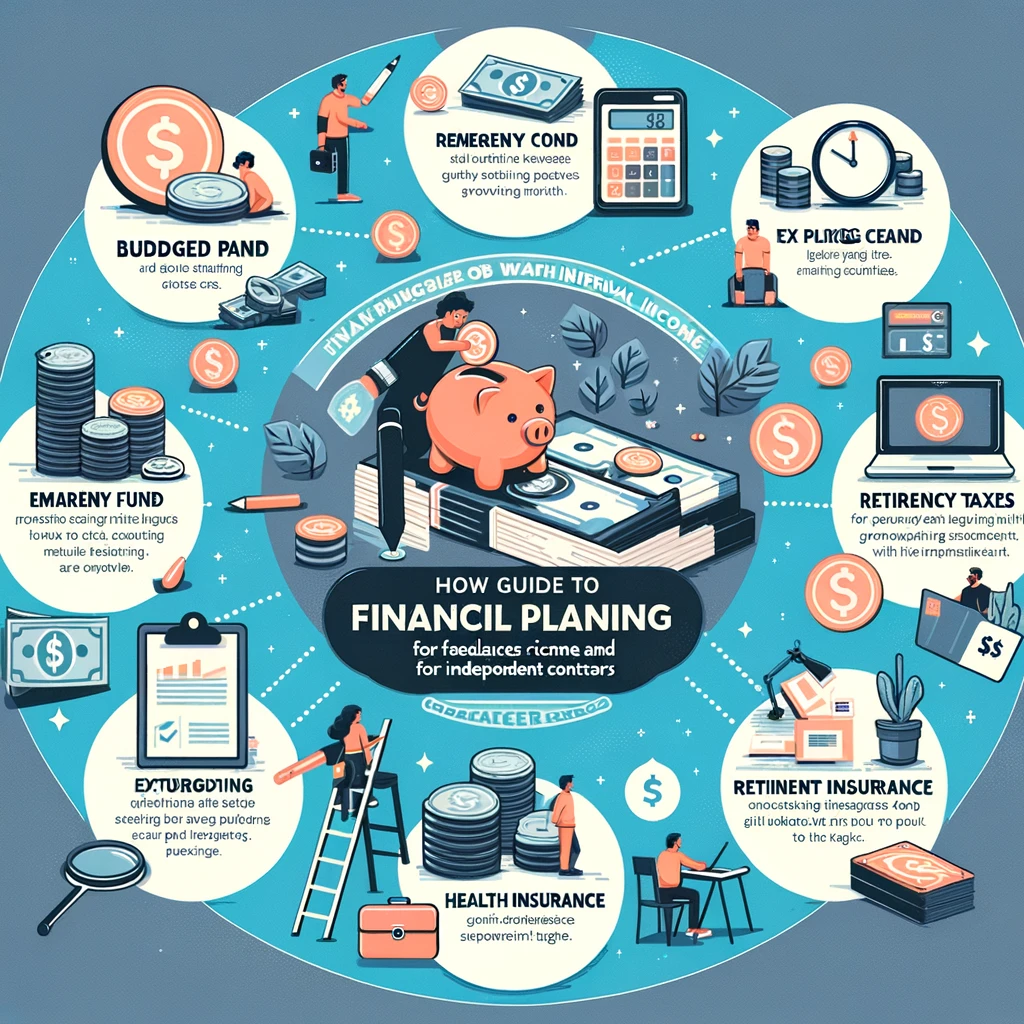In today’s rapidly evolving job market, the gig economy plays a pivotal role, offering flexibility and autonomy that traditional employment does not. Freelancers and independent contractors face unique financial challenges, from fluctuating incomes to the absence of employer-provided benefits. This comprehensive guide provides essential financial tips to help gig workers navigate their economic landscape, ensuring stability and growth in their careers.

Understanding the Gig Economy
Defining the Gig Economy The gig economy encompasses a variety of fields where individuals work as freelancers, independent contractors, or temporary workers. These roles can range from tech services to creative work, and from rideshare driving to freelance writing.
Challenges of Gig Work Unlike traditional jobs, gig work typically lacks job security, consistent income, and employer benefits like health insurance or retirement plans. Understanding these challenges is the first step towards managing them effectively.
Financial Planning for Gig Workers
Create a Budget for Irregular Income One of the most crucial steps for freelancers is to develop a budget that accommodates the irregularity of their income. This involves identifying essential expenses, setting aside money for taxes, and ensuring enough savings to cover dry spells.
Emergency Fund Due to income volatility, having an emergency fund is even more critical for gig workers. Aim to save at least three to six months’ worth of living expenses to safeguard against unexpected downturns in work availability or personal emergencies.
Tax Management Gig workers are responsible for their taxes, including self-employment tax. Setting aside a portion of each payment for taxes and making quarterly estimated tax payments can prevent year-end surprises and penalties.
Investing in Your Future
Retirement Savings Without employer-sponsored retirement plans, freelancers need to proactively plan for retirement. Options like a SEP IRA, a Solo 401(k), or a traditional or Roth IRA can help save for the future.
Health Insurance Navigating health insurance independently is another challenge. Freelancers should explore the Health Insurance Marketplace to find coverage that fits their needs and budget, or consider health-sharing plans as a more affordable alternative.
Continuous Education and Skills Development Investing in personal and professional development can lead to better opportunities and higher rates. Workshops, courses, and certifications can keep skills sharp and make freelancers more competitive in the marketplace.
Diversifying Income Streams
Explore Multiple Gig Opportunities Diversifying your gig work can help stabilize income. Freelancers can explore different gig platforms, offer varied services, or even consider passive income streams related to their field.
Networking and Personal Branding Building a robust network and a strong personal brand can open doors to more consistent and lucrative gigs. Active engagement on professional social media platforms and at industry events can increase visibility and credibility.
Conclusion
Navigating the financial aspects of gig work requires diligence, planning, and a proactive approach to saving and investment. By understanding the unique challenges of the gig economy and employing effective financial strategies, freelancers and independent contractors can achieve stability and success in their careers.




